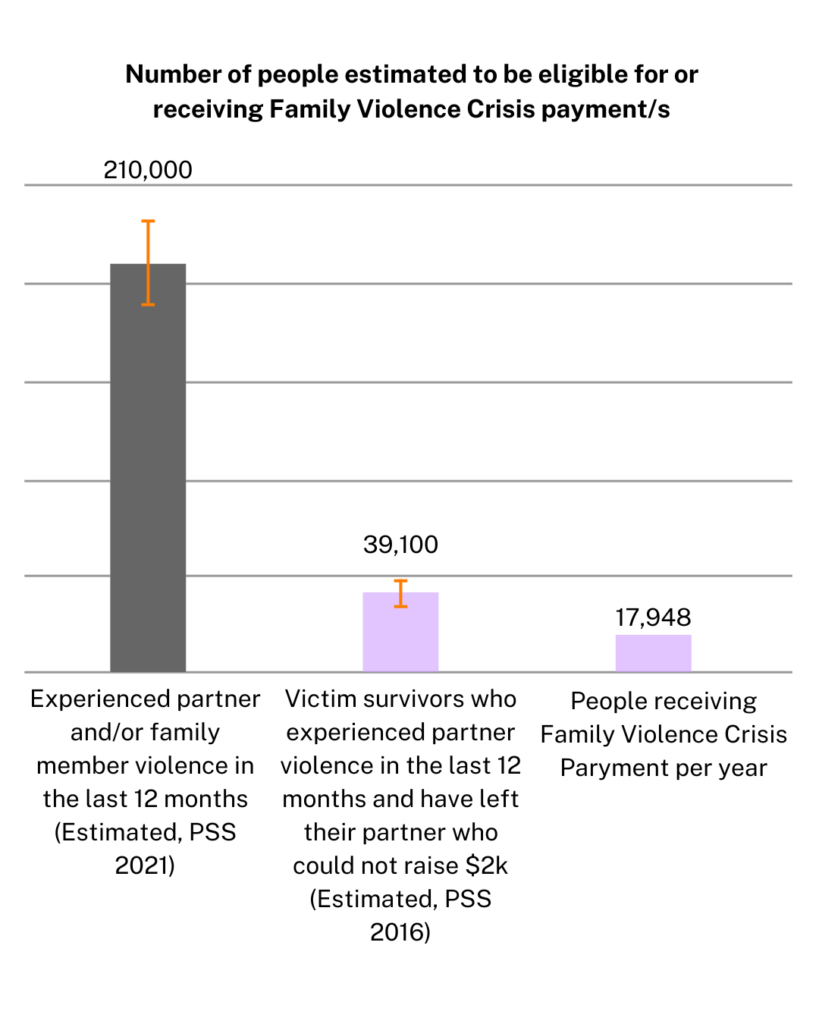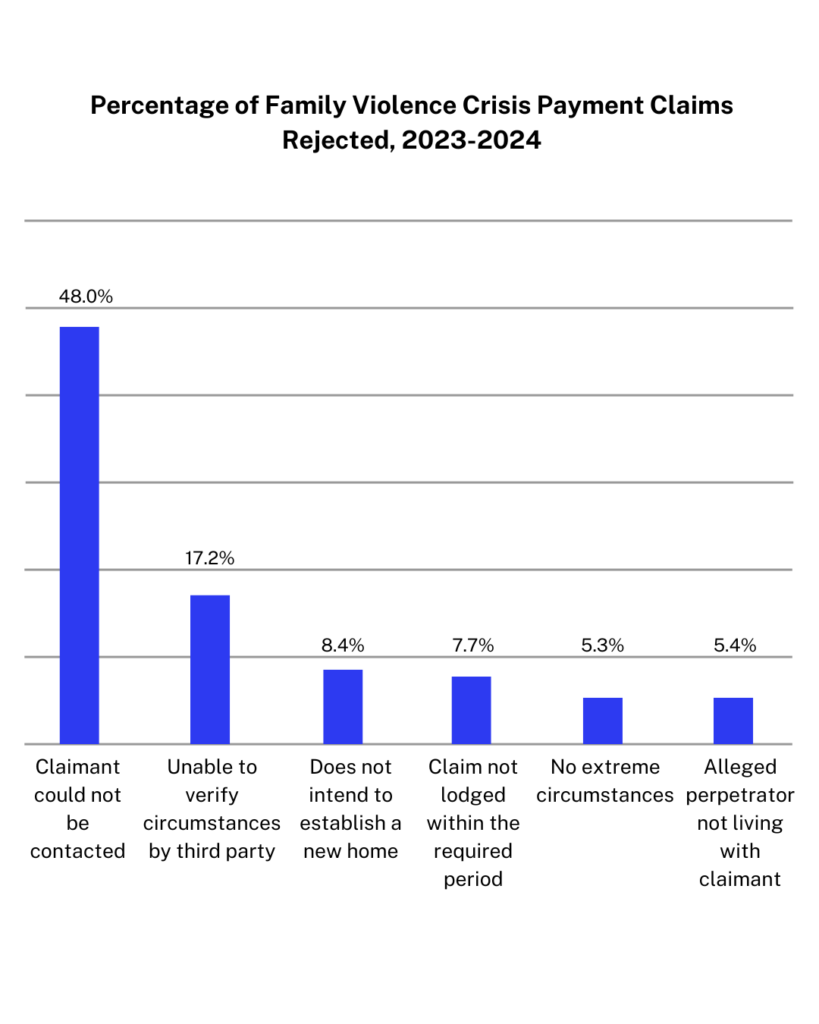SVA research interrogates effect of government payments on victim survivors of family and domestic violence
Ahead of the 2025 Budget, and using our insights, the EIAC recommended 10 ways to boost economic inclusion, including better social security support for victim survivors of family and domestic violence.

The Economic Inclusion Advisory Committee (EIAC) recommendation was made after the team at SVA Consulting, in partnership with Professor Roslyn Russell, brought together existing literature with data analysis across three different datasets, to better understand the impacts of government payments on victim survivors of family and domestic violence.
- Around 36-40% of victim-survivors of partner violence receive a government payment (e.g. JobSeeker or the Disability Support Pension).
- Victim survivors who receive government payments may be more likely to face challenges leaving a violent relationship, and may be more likely to highlight lack of money as the main barrier to leaving.
- Victim survivors who receive government payments may be more likely to return to a violent relationship than victim survivors on salary or wages.
- There is strong evidence that leaving a violent relationship leads to financial hardship, that those on government payments are highly vulnerable, and that financial hardship can lead to victim survivors returning to the violent relationship.
“Ultimately, the decision to leave a violent relationship, or return to one, involves many complex factors including financial concerns. Government payments can both alleviate and entrench financial stress for victim survivors,” says Susie King, Executive Director, Consulting and Family Violence Practice Lead at SVA.
“But undeniably, we found victim survivors face unique challenges in accessing government payments, such as meeting the short application timeframes, communicating with Centrelink staff during a time of crisis, and the ability to safely gather the evidence required to demonstrate their eligibility.
“Not all victim survivors who need to access government support payments are able to. And in fact, the data suggests they are more likely to lose payments due to not meeting mutual obligations compared to other payment recipients.”


“There is an opportunity to commit to richer, more detailed research and data collection, tackling the gaps in information we encountered, so that policy is data-informed, improved and government assistance for victim survivors is a resource for good.”
Family and domestic violence is a major health, economic and welfare issue in Australia, leading to physical and mental ill health, financial hardship and homelessness. Around 11% of the Australian population has experienced current and/or previous partner violence. First Nations communities, people with disability, people with young children and people living outside major cities report disproportionately higher rates of violence and higher rates of receiving government payments.
Despite being able to access detailed government data on payment recipients, there were critical gaps which prevented us from conclusively answering many questions. However, the trends we were able to confirm are important. They build on existing and emerging evidence that access to government payments is an influential factor in a victim survivor’s experience leaving a violent relationship, and in attaining and maintaining future independence and recovery. We can do better to ensure this experience is a more positive one, shifting the dial on disadvantage for many thousands of Australians affected by family and domestic violence.
You can access the EIAC 2025 Report to Government here, finding SVA’s contribution summarised in Chapter 5. SVA’s report is published in Appendix 7 (pg 198).
The Economic Inclusion Advisory Committee is an independent group of leaders from the community and advocacy sector, unions, business and philanthropy together with experts in social security and economics. Other recommendations explored in the report include:
-
- Improving the adequacy of JobSeeker and related payments as a top priority;
-
- Increasing Commonwealth Rent Assistance; and
-
- Increasing the Remote Area Allowance which isn’t indexed and hasn’t been increased for a quarter of a century.
SVA was commissioned to analyse existing literature together with data from the Personal Safety Survey (ABS), Data Exchange (Department of Social Security) and DOMINO (Department of Social Security/Australian Institute of Health and Welfare).
The term ‘victim survivor’ is used throughout this article and its sources to describe people who have lived experience of family and domestic violence, as well as immediate family members of those who have lost their lives to family violence. This term acknowledges the ongoing effects and harm caused by violence, and the strength and resilience of those with lived experience.







